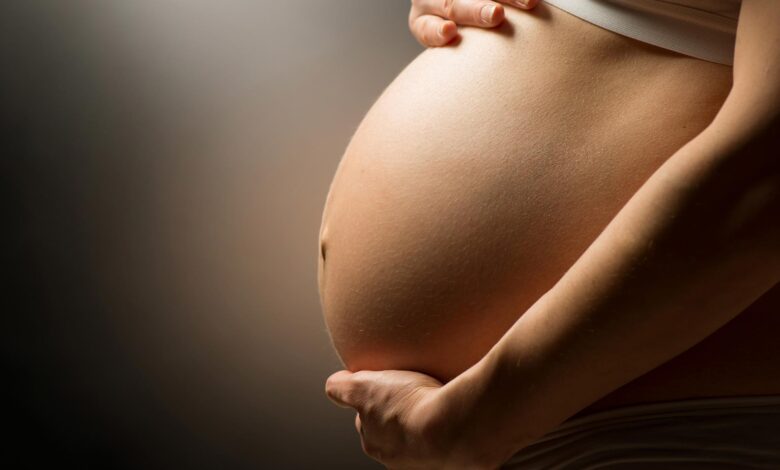New Global Standard? Iron Infusions Boost Pregnancy Outcomes in Landmark Study

A single third-trimester iron infusion considerably reduces anemia in pregnant women, outperforming oral iron tablets and providing potential to enhance maternal care globally.
A groundbreaking examine has demonstrated {that a} single iron infusion in the course of the third trimester considerably reduces anemia in pregnant women, surpassing the effectiveness of normal iron tablets. This discovery might reshape the usual of care for managing iron deficiency in pregnancy.
Iron is essential throughout pregnancy to make sure the health of each mom and baby. Insufficient iron ranges are related to elevated dangers of preterm delivery, low delivery weight, and postpartum depression.
The analysis, led collectively by WEHI (Australia) and the Training Research Unit of Excellence (Malawi), is the primary to verify that iron infusions in late pregnancy can considerably improve iron ranges in women as they put together for childbirth. These findings maintain the potential to reinforce maternal care and enhance delivery outcomes worldwide.
The Global Burden of Anaemia in Pregnancy
Iron deficiency is likely one of the main causes of anemia in pregnancy worldwide. Globally, round 37% of pregnant women are anemic – nearly 32 million women at any given time. In Australia, anemia reportedly happens in 25% of all pregnancies.
Pregnant women with anemia are at elevated danger of issues, together with persistent fatigue, post-partum hemorrhage, and stillbirth deliveries. Anemic pregnancies may also be dangerous for the baby, with potential impacts on the event of the placenta, the baby’s mind improvement, and purple blood cell formation.

In efforts to scale back iron deficiency in pregnancy, WEHI researchers labored with scientists on the Training Research Unit of Excellence and Kamuzu University of Health Sciences (Malawi) on an revolutionary trial evaluating the effectiveness of iron infusions to oral iron tablets throughout late pregnancy.
“While anemia is one of the most avoidable causes of illness and death in resource-poor nations, any woman across the world can become anemic during pregnancy, highlighting how this remains a global priority,” co-corresponding writer Professor Sant-Rayn Pasricha mentioned.
“We discovered {that a} single iron infusion in the third trimester can obtain what oral iron tablets taken each day throughout a pregnancy can’t.
“This is the first concrete evidence that proves infusions in late pregnancy are the superior treatment for combatting anemia in expectant mothers, boosting iron levels at a critical time that can ensure both mother and baby are better protected during birth.”
Large-Scale Trial Results
Working alongside Professor Kamija Phiri (Training Research Unit of Excellence), the analysis staff performed one of many largest iron trials, involving 590 pregnant women in Malawi.
The staff discovered the women receiving infusions had a decrease anaemia prevalence (46.7%) in comparison with these receiving iron tablets (62.7%) on the time of supply.

A 3rd-trimester infusion was additionally discovered to guard a mom’s iron shops, even postpartum.
“This sustained impact on anemia is an unprecedented finding that really crystallizes the case for using infusions in late pregnancy to rapidly boost red blood cell production and iron levels,” Prof Pasricha, head of the Anaemia Research Laboratory at WEHI, mentioned.
“We hope our findings will quickly be translated in health settings internationally to kind a uniform set of tips that may guarantee extra women get the precise iron remedy once they want it most.
“If intravenous iron can be safely delivered in basic health centers in remote Malawi as our trial has shown, there’s really no health setting where IV iron couldn’t be effectively and safely given.”
The World Health Organization (WHO) at the moment recommends oral iron tablets taken twice each day for pregnant women as the first prevention technique for maternal anemia. Researchers hope to quickly share this knowledge with the WHO to assist inform future international antenatal care tips.
Reference: “Ferric carboxymaltose for anemia in late pregnancy: a randomized controlled trial” by Sant-Rayn Pasricha, Ernest Moya, Ricardo Ataíde, Glory Mzembe, Rebecca Harding, Martin N. Mwangi, Truwah Zinenani, Khic-Houy Prang, Justina Kaunda, Owen P. L. Mtambo, Maclean Vokhiwa, Gomezgani Mhango, Elisabeth Mamani-Mategula, Katherine Fielding, Ayşe Demir, Naomi Von Dinklage, Hans Verhoef, Alistair RD McLean, Lucinda Manda-Taylor, Sabine Braat and Kamija S. Phiri, 6 January 2025, Nature Medicine.
DOI: 10.1038/s41591-024-03385-w





